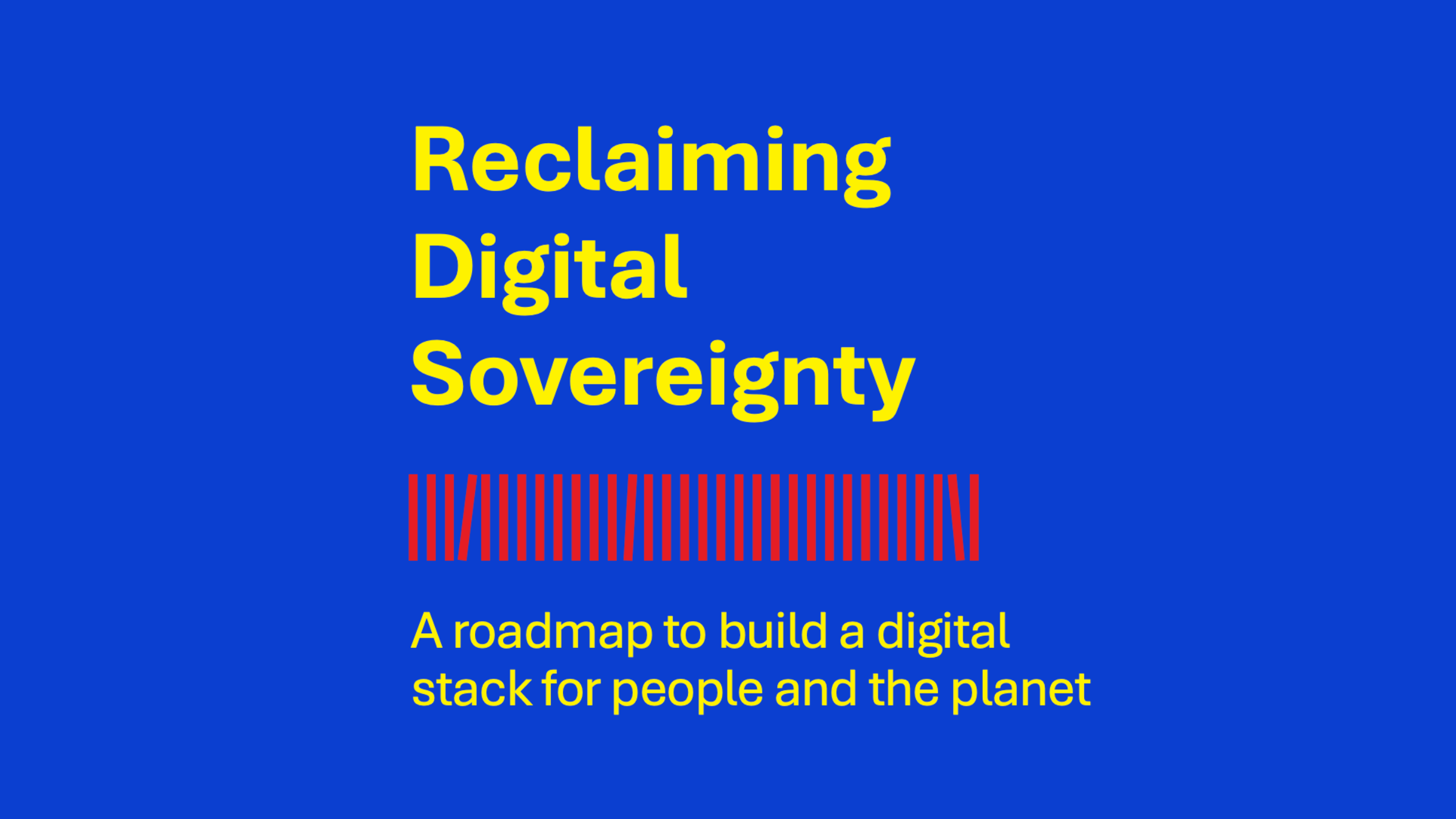I’ve been writing a lot about getting off US tech in an individual capacity and why our governments need to get serious about digital sovereignty in recent months. As part of that, the Canadian Centre for Policy Alternatives asked me to write about what that might look in Canada. I chose to focus on some of the infrastructure that underpins the internet itself, often called the cloud. You can read it on their website, but they’ve allowed me to share it with newsletter subscribers too. Enjoy!
During the 2025 election campaign, prime minister Mark Carney made a striking admission about Canada’s dependence on US tech companies. The Canadian government was in the process of choosing a partner for a 25-year cloud computing contract for the federal government. The contract’s length should have set off red flags of its own, but the part that Carney drew attention to was the companies lined up to win it.
The shortlist had been narrowed down to four companies: Amazon, Google, Microsoft, and Oracle — all US tech giants. At a time when the United States was threatening Canadian sovereignty and waging economic war on the country, the idea of further increasing Canada’s reliance on dominant US tech companies couldn’t fly. Carney promised that if he was reelected, he would review the process. On April 28, the Liberal Party won another minority government.
Carney’s statement was easily overlooked given the flood of other news during the election period, but it was important for a number of reasons. Cloud infrastructure has become essential to the modern world and the digital technologies that power it, but it’s often hidden from view and easy to forget about.
The “cloud” refers to a series of warehouse-sized facilities around the world, filled with tens of thousands of servers and hard drives, that power the internet and many of the services we collectively rely on — our governments included. But those hyperscale data centres are overwhelmingly controlled by those four major tech companies. As the United States becomes a less trustworthy partner, our dependence on them creates a serious vulnerability.
For the past several decades, since the internet’s privatization by the US government in 1995, we’ve effectively allowed US companies to dominate the digital economy. When you think about the digital services or devices you rely on today, few if any come from Canadian companies. That not only means our government has less power to protect Canadians’ rights and assert our values online, but also ensures the economic gains are exported to the United States. Its dominant tech companies are a big part of the reason the US economy, and particularly its stock market, performs better than its peers.

Our European allies are also expressing increasing concern about their dependence on the US cloud giants like Microsoft and Google. In recent months, European media reported that Trump could cut off access to cloud services offered by US tech companies in Europe to increase pressure on them as part of his trade war. The United States also passed a bill in 2018 called the CLOUD Act that allows the U.S. government to access data stored by U.S. companies, regardless of where in the world it’s held. That’s not an infrastructure any Canadian, and certainly not our government, should be relying on.
As Carney looks to reduce Canada’s dependence on the United States, we can’t ignore the extent of our technological dependence — and the cloud is a great place to start. Carney’s statement during the election suggested he would look to Canadian companies to supply more of the computation and storage needs of the federal government, but he should be far more ambitious.
Instead of simply encouraging the buildout of a private Canadian cloud, the government should invest in the expansion of a public cloud — built and run by a Crown corporation with public financing to serve government needs, but potentially to expand beyond that too. The government already has data centres of its own, but in recent decades it’s more often looked to the private sector to supply more of its computational needs instead of developing in-house capacities as it did with older forms of information technology.
The privatization of the internet corresponded with a political moment, often referred to as neoliberalism, when the public sector was in retreat and policymakers handed more power to the private sector. As a result, the new owners of online infrastructure made a strong push to erase any public role in shaping the internet or digital technology. We see the consequences of this privatization today, from the harms arising from social media to the broader degradation of the web so companies can maximize their profits. As we reject our ongoing dependence on US tech companies, the notion that the management of digital technology should be left to the private sector should go along with it.

Public cloud infrastructure would escape the corporate need to maximize shareholder value and distorted incentives it creates for the companies that dominate the sector. Smaller firms have long complained about how aggressively cloud companies have raised prices over time and pushed additional services on them they did not need.
In recent years, we have also seen a rapid expansion of hyperscale data centres, with significant energy, water, and climate consequences. In part, this is to power generative AI technologies whose benefits remain dubious, but it also ensures the cloud businesses of those companies continue to grow at a rapid pace.
The government should not be subjecting itself to the corporate pressures to increase the amount of computation it requires and the number of AI tools it uses beyond what is necessary, all to serve the bottom lines of cloud companies. Developing its own infrastructure means the Canadian government can build what it needs and ensure it does appropriate assessment of new technologies to see if they will actually help the public service and benefit Canadians more broadly.
Over time, that infrastructure could serve as the foundation of a new set of digital services and platforms developed to serve the public good over private profit — without the need for extensive data collection to serve ad-targeting systems or the pressures to serve up extreme and misleading content to keep people engaged on exploitative platforms.
Handing the digital sphere to US companies that don’t have our interests at heart was always a mistake. The time when they claimed to “do no evil,” as Google’s motto once led us to believe, is long gone. As we seek to reclaim our sovereignty, control over the technologies we depend on must be a central part of that effort. When we do regain that power, we must ensure the cloud infrastructure and other digital products we use instead are built to serve Canadians first and foremost — not shareholders with a very different set of motivations.







Member discussion